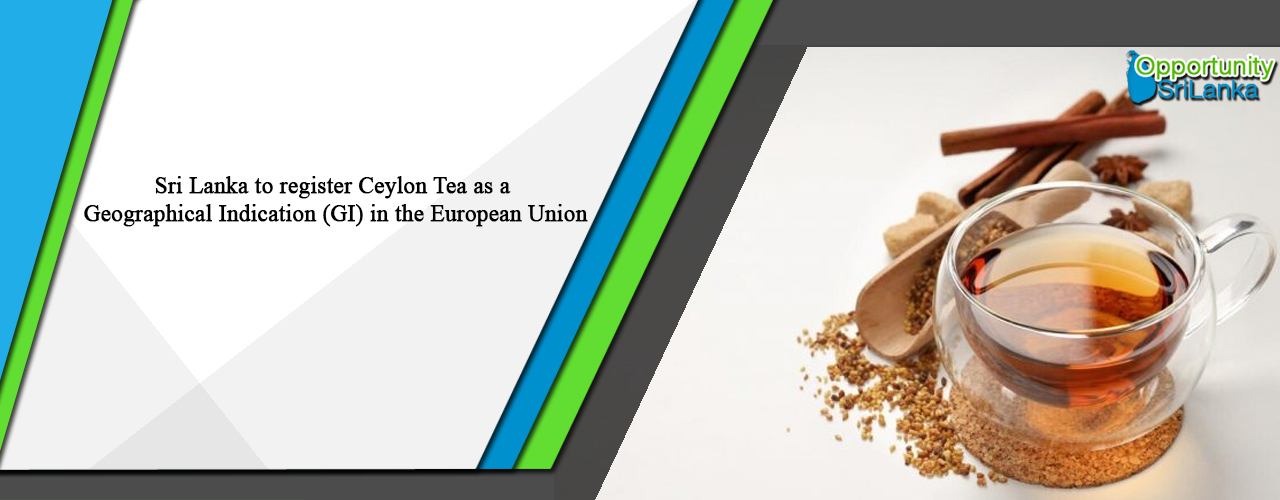Sri Lanka to register Ceylon Tea as a Geographical Indication (GI) in the European Union
The Morning: Sri Lanka will be submitting its application for the registration of Ceylon Tea as a Geographical Indication (GI) in the European Union (EU) within the first quarter of 2024, according to the Sri Lanka Tea Board (SLTB).
Speaking to The Sunday Morning Business, SLTB Chairman Niraj de Mel stated that they were currently working on creating a GI for Ceylon Tea within the EU with the assistance of the French Government and that they expected to submit the application within the first quarter of 2024.
He further revealed that the French Development Agency (AFD), a French Government agency, had provided the necessary financial assistance to the SLTB, together with the French Agricultural Research Centre for International Development (CIRAD), in order to acquire the GI in the EU.
“The EU does not require a home registration for the GI and Sri Lanka does not have a home registry for the GI. We have to get that before we go anywhere else. Since the EU does not have this requirement, they are willing to get us on board for tea. However, it will be limited to the EU,” he said.
De Mel expressed hope that Sri Lanka would be able to secure the GI for Ceylon Tea within this year.
The SLTB signed a tripartite agreement with the AFD and CIRAD in 2021, where the AFD agreed to provide a € 1 million grant as technical assistance to the SLTB through CIRAD for the development of the GI for Ceylon Tea.
GI certification serves to uphold and authenticate the quality, reputation, and characteristics of a product by linking it to a specific territory through intellectual property protection, while also giving it added value in national and international markets.
Therefore, the creation of a GI for Ceylon Tea is aimed at promoting quality products, protecting the traditional know-how it is based upon, and enhancing its commercial value and recognition in international markets.
OSL take:
Tea is among one of Sri Lanka’s leading export commodities that earn a high revenue for the country. There has been a steady growth in Sri Lanka’s tea industry in the past few years and the many trade agreements as well as trade concessions enjoyed with other countries have also helped boost the industry. It is in such a backdrop that Sri Lanka is looking at getting the GI certification for tea. Sri Lanka already had GI certification for another export commodity – cinnamon. The GI certification for Sri Lanka Tea would result in the further growth in local tea exports, especially to the EU market. All these are indicative of the growth and business potential in Sri Lanka’s tea industry. The government of Sri Lanka has also introduced many incentives to attract foreign businesses/investors to the tea industry while the Export Development Board (EDB) is engaged in many promotional campaigns to expand access to foreign markets. The local tea authorities are also looking at further expanding the existing product portfolio for tea exports as well. Given the growing business potential in Sri Lanka’s tea industry, foreign businesses/investors could confidently explore the expanding opportunities in the industry.
| Article Code : | VBS/AT/20240209/Z_3 |

